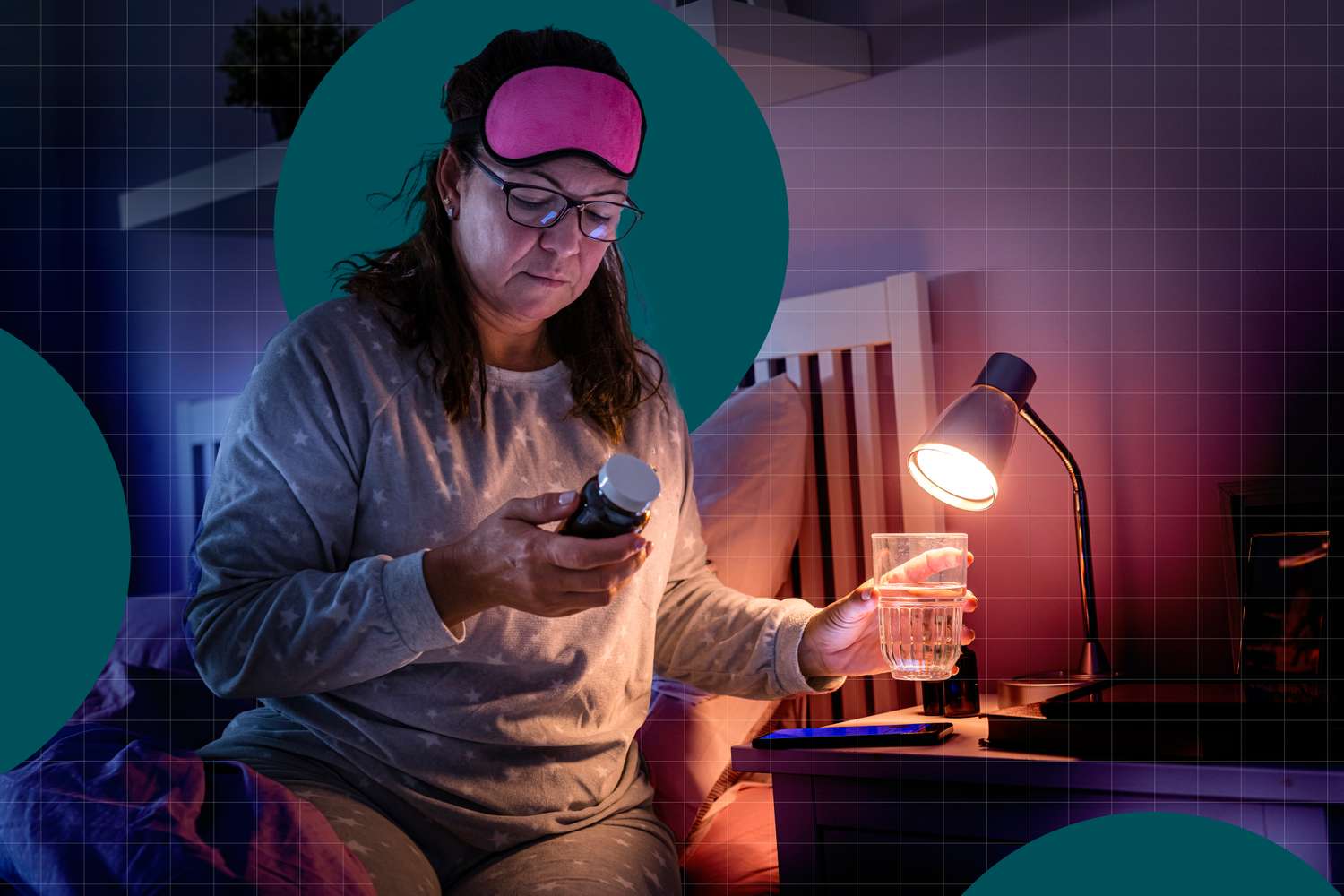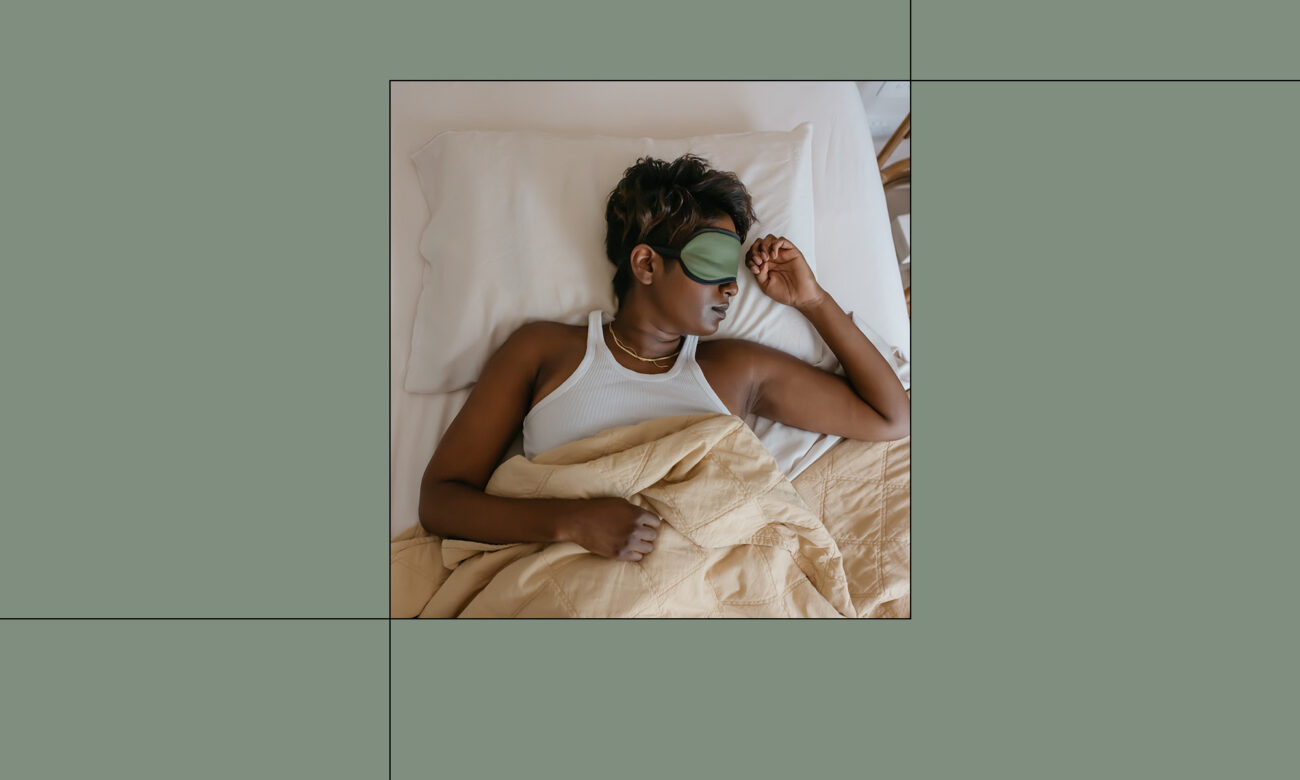Blog
Which Sleep Aid Is Best?

- Many people with sleep difficulties turn to magnesium or melatonin supplements.
- These supplements each work differently, so the best one may depend on your sleep challenges.
- Paired with good sleep habits, they may help you get the rest you need.
Sleep isn’t just a nightly recharge. It’s the secret sauce for physical health, emotional balance and sharp thinking. Yet, if quality sleep feels as elusive as a dream you can’t quite remember, you may have thought about turning to supplements like magnesium or melatonin. But here’s the million-dollar question: which one is the best for better sleep?
The answer isn’t one-size-fits-all, and it may depend on your personal sleep challenges. Maybe it takes you forever to fall asleep. Or, you nod off quickly, but later find yourself awake for hours in the middle of the night.
Either way, keep reading. We asked experts to weigh in on the differences between magnesium and melatonin, so you can decide which of these sleep supplements is right for you.
How Melatonin May Improve Sleep
Melatonin is often referred to as the body’s natural sleep hormone. “Melatonin is naturally produced by the pineal gland in the brain, playing a pivotal role in regulating the body’s circadian rhythm—the internal clock that governs sleep-wake cycles,” says Andy Franklyn-Miller, M.B.B.S., Ph.D.
“As daylight fades, melatonin levels rise,” he explains. “This hormonal cue helps reduce alertness, lowers body temperature and promotes drowsiness, easing the transition to sleep.” Melatonin supplements, which are readily available over-the-counter, mimic this natural process, he says.
Here are some ways that melatonin may help support sleep:
Melatonin Supports Circadian Rhythm Regulation
Your circadian rhythm impacts when you feel alert versus when you feel sleepy. Factors like jet lag, shift work, lack of sunlight during the day or exposure to bright screens at night can throw this rhythm off balance. Melatonin supplements may help some people reestablish a healthy sleep-wake pattern. For example, travelers often use melatonin to fall asleep more easily at night when trying to adjust to new time zones.
Melatonin May Help You Fall Asleep Faster
One of melatonin’s key benefits is its ability to reduce the time it takes to fall asleep, known as sleep onset latency. Melatonin supplements can help temporarily increase your body’s melatonin levels, telling your body it’s time for slumber. This may be especially helpful for people with occasional insomnia. One meta-analysis of 26 clinical trials found that melatonin may help people fall asleep faster, stay asleep longer and sleep more soundly, especially when taken at doses of 2 to 4 milligrams 3 hours before bedtime.
Melatonin may also be beneficial for those with a condition called delayed sleep phase syndrome, in which they routinely lie awake for two or more hours before falling asleep at night and have difficulty waking up the next morning.
Melatonin Might Be Beneficial If You Always Wake Up Too Early
While research is mixed, melatonin supplements might offer relief for people with primary insomnia, which is trouble sleeping that’s not caused by another medical issue. People with this condition frequently have trouble falling or staying asleep. Or they awaken early in the morning and can’t get back to sleep.
One study of people with primarily insomnia found that those who took 3 mg of fast-release melatonin every night, one hour before bed for four weeks, slept on average 30 minutes longer in the morning than a control group that received a placebo. However, melatonin didn’t help them fall asleep any faster at night or prevent middle-of-the-night wake-ups, so it’s not perfect. In fact, the American Academy of Sleep Medicine cautions against using melatonin supplements for chronic insomnia and recommends focusing on improving sleep habits instead.
How Magnesium May Improve Sleep
Magnesium is a mineral involved in many processes in the body, and may help support sleep in various ways. Some observational studies have found that healthy people with higher magnesium levels tend to have better sleep quality, including less daytime sleepiness, fewer snoring episodes and longer sleep overall. However, the results of randomized clinical trials are not as conclusive.
Magnesium Helps Regulate Stress Hormones
Stress is one of the biggest contributors to sleepless nights. Magnesium may help by indirectly modulating the release of the stress hormone cortisol. This, in turn, may help relax your body and mind at bedtime.
One study evaluated the effects of taking a 350-mg magnesium supplement or a placebo daily on urinary cortisol (a marker of cortisol levels in the blood). At the end of the 24-week study, those who took the magnesium had lower urine cortisol levels than those who took the placebo. While the study didn’t focus on sleep per se, its findings are encouraging if stress has you tossing and turning all night.
Magnesium Supports the Production of Sleep-Promoting Neurotransmitters
“Think of magnesium as your body’s natural relaxant, helping calm the nervous system and muscles, and supporting sleep-inducing brain chemicals like GABA,” says Karman Meyer, RDN, LDN, RYT. GABA, or gamma-aminobutyric acid, is a neurotransmitter that quiets brain activity and prepares the body for sleep. Magnesium stimulates GABA receptors in the brain, reducing mental chatter and promoting feelings of drowsiness. Conversely, a magnesium deficiency can interfere with this process, potentially leading to decreased sleep quality and more nighttime awakenings.
Magnesium vs. Melatonin – Which One is Better for Sleep?
When comparing magnesium and melatonin for sleep, neither is universally “better” than the other. Instead, their effectiveness depends on the cause of your sleep issues.
“Melatonin directly targets the circadian rhythm, making it ideal for resetting sleep schedules disrupted by travel, shift work or chronic insomnia,” says Franklyn-Miller. However, it’s not for everyone. “One of the big issues is that regular supplementation can suppress the body’s natural melatonin production,” he says. That means you may continually need higher doses for it to stay effective, plus many people find it makes them groggy in the morning, he adds. Additionally, melatonin can interact with certain medications. So, be sure to speak with your healthcare provider before taking this or any other supplement.
“Magnesium, conversely, promotes relaxation by calming the nervous system and muscles, which may benefit those with stress-related sleep issues or mild deficiencies,” he says. “Its effects are broader but less targeted, and research is less conclusive. Neither is a cure-all, and lifestyle factors like sleep hygiene often outweigh supplements.”
Another benefit of magnesium supplements is that they may fill dietary gaps, especially since many of us don’t consume enough magnesium-rich foods, says Meyer. By taking a supplement, you can boost your magnesium intake and get prolonged sleep benefits compared to melatonin, which isn’t recommended for long-term use, she says.
Other Strategies to Promote Quality Sleep
Relying on supplements isn’t the only way to improve your sleep. Integrating healthy habits, like these, into your routine can make a big difference in your sleep and overall energy.
- Establish a Consistent Sleep Schedule: Going to bed and waking up at the same time every day (even on weekends) can reinforce your body’s natural sleep rhythms, making it easier to fall and stay asleep.
- Create a Relaxing Bedtime Routine: Engage in calming activities before bed, such as reading, meditating or taking a warm bath. Avoid screen time for at least an hour before bed, as blue light can suppress melatonin production.
- Exercise Regularly: Physical activity can improve sleep quality, but timing matters. Aim to exercise earlier in the day, since working out too close to bedtime can leave you feeling energized rather than relaxed.
- Drink a Small Glass of Tart Cherry Juice Before Bed: Tart cherries are a natural source of melatonin, and drinking tart cherry juice has been linked to better sleep.
- Create a Sleep-Friendly Space: Optimize your sleep environment by keeping your room cool, dark and quiet. Investing in a supportive mattress and comfortable bedding may also promote better rest.
Our Expert Take
Magnesium and melatonin have different ways of promoting better sleep. But their magic lies in meeting your unique needs. Melatonin may reset your sleep-wake cycle and help you fall asleep faster, while magnesium can ease stress and promote the release of the sleep-inducing neurotransmitter GABA. But here’s the thing. Neither is a cure-all, and supplements alone aren’t the whole story. Combine them with healthy sleep habits, like sticking to a consistent bedtime and creating a soothing nighttime routine and calm, quiet bedroom, and you’ll unlock even greater results.












